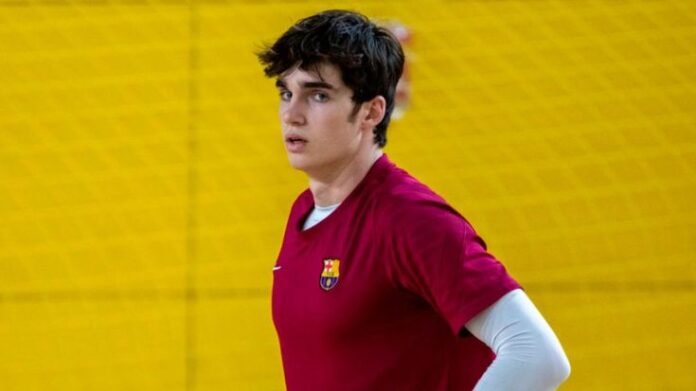Introduction
Pablo Nicolás Sebastián Urdangarin y Borbón is a name increasingly recognized in discussions about modern European royalty, particularly the Spanish royal family. As a member of the extended Spanish royal lineage, Pablo Nicolás carries a significant legacy tied to the House of Bourbon and the influential Urdangarin family. His identity and background often spark curiosity, not only because of his royal ties but also due to his family’s public profile, which has experienced both moments of prestige and controversy.
Understanding who Pablo Nicolás Sebastián Urdangarin y Borbón is requires exploring his family lineage, his place within the Spanish monarchy, and his personal path amidst the evolving role of royalty in contemporary Spain. This article aims to provide a comprehensive, clear, and factual insight into his life, ancestry, and what makes him a noteworthy figure today.
Pablo Nicolás Sebastián Urdangarin y Borbón: Family Background and Lineage
Pablo Nicolás Sebastián Urdangarin y Borbón was born into a family deeply entwined with the Spanish royal family and the nobility. He is the second son of Infanta Cristina of Spain and Iñaki Urdangarin, the Duke of Palma de Mallorca. His mother, Infanta Cristina, is the younger daughter of King Juan Carlos I and Queen Sofía, making Pablo Nicolás a grandson of the former King of Spain.
The surname “Urdangarin y Borbón” reflects his dual heritage. The Urdangarin family is of Basque origin and has garnered attention largely because of Iñaki Urdangarin’s past as a professional handball player and his involvement in Spanish public life. Meanwhile, the Borbón name ties Pablo Nicolás to one of Europe’s oldest royal houses—the House of Bourbon, which has ruled Spain on and off since the 18th century.
Early Life and Education
Pablo Nicolás was born on December 6, 2000, in Barcelona, Spain. Growing up in a family often in the public eye, he has experienced the complexities of royal life coupled with the challenges of media scrutiny. Alongside his siblings — Juan, Miguel, and Irene — Pablo Nicolás has been part of a family that faced significant public and legal challenges due to his father’s involvement in a high-profile corruption case.
Despite these challenges, the children of Infanta Cristina and Iñaki Urdangarin have pursued education with relative privacy. Pablo Nicolás has attended international schools and continues to receive a cosmopolitan upbringing, emphasizing normalcy and discretion in contrast to the heightened attention on his family.
Role in the Spanish Royal Family
While Pablo Nicolás is a royal descendant, he does not hold an official royal title. Unlike the immediate heirs to the Spanish throne, his position is more private and removed from direct royal duties. This is partly due to decisions made by the Spanish monarchy to streamline the royal family’s public role, focusing on the core members who have constitutional responsibilities.
Pablo Nicolás’s royal bloodline, however, remains a defining element of his identity, positioning him within a unique societal segment in Spain. His life illustrates how modern royals balance tradition, privacy, and public expectations in a democratic and media-rich world.
Public Perception and Media Coverage
The public image of Pablo Nicolás Sebastián Urdangarin y Borbón is shaped not just by his lineage but also by the controversies surrounding his family. His father, Iñaki Urdangarin, was convicted for his role in the Nóos corruption scandal, which brought intense media scrutiny and public debate about accountability within royal circles.
Despite this, Pablo Nicolás and his siblings have maintained a relatively low profile, avoiding involvement in political or social controversies. Media portrayals often highlight their efforts to lead normal lives away from the royal spotlight, contributing to a nuanced perception of the younger generation of Spanish royals.
Future Prospects and Public Life
As Pablo Nicolás matures, speculation about his future role in public or private sectors grows. While he is not in the direct line of succession, his noble heritage may afford him opportunities in various fields, including business, philanthropy, or cultural endeavors.
Unlike previous generations, modern royal family members like Pablo Nicolás often choose careers outside traditional royal duties, focusing on personal development while upholding their family’s legacy discreetly. How he will navigate these choices remains a point of interest among royal watchers and the public alike.
Best 5-Letter Words on WordHippo: Ultimate Guide for Word Games & Vocabulary
Conclusion
Pablo Nicolás Sebastián Urdangarin y Borbón stands at the intersection of tradition and modernity within Spain’s royal framework. As a grandson of King Juan Carlos I, his heritage connects him to centuries of European monarchy, yet his personal path reflects the changing dynamics of royal families in the 21st century. His story is one of balancing noble lineage with the desire for normalcy amid public attention.
While not a central figure in official royal duties, Pablo Nicolás symbolizes a new generation navigating legacy, media scrutiny, and personal ambition. Understanding his background helps illuminate broader themes about the evolving role of royalty in Spain today, highlighting how tradition adapts in modern democratic societies.
FAQs
1. Who are the parents of Pablo Nicolás Sebastián Urdangarin y Borbón?
Pablo Nicolás is the son of Infanta Cristina of Spain and Iñaki Urdangarin, Duke of Palma de Mallorca.
2. Is Pablo Nicolás Sebastián Urdangarin y Borbón in line for the Spanish throne?
No, he is not in the direct line of succession and does not hold any official royal title.
3. What is the significance of the surname Urdangarin y Borbón?
The surname reflects his family heritage, combining the Basque-origin Urdangarin name and the royal Borbón lineage.
4. Has Pablo Nicolás been involved in any public controversies?
No, he has maintained a low profile, especially compared to his father’s involvement in the Nóos scandal.
5. What are the future prospects for Pablo Nicolás Sebastián Urdangarin y Borbón?
He is likely to pursue a private career, possibly in business or philanthropy, while maintaining a discreet role within his family’s noble heritage.
